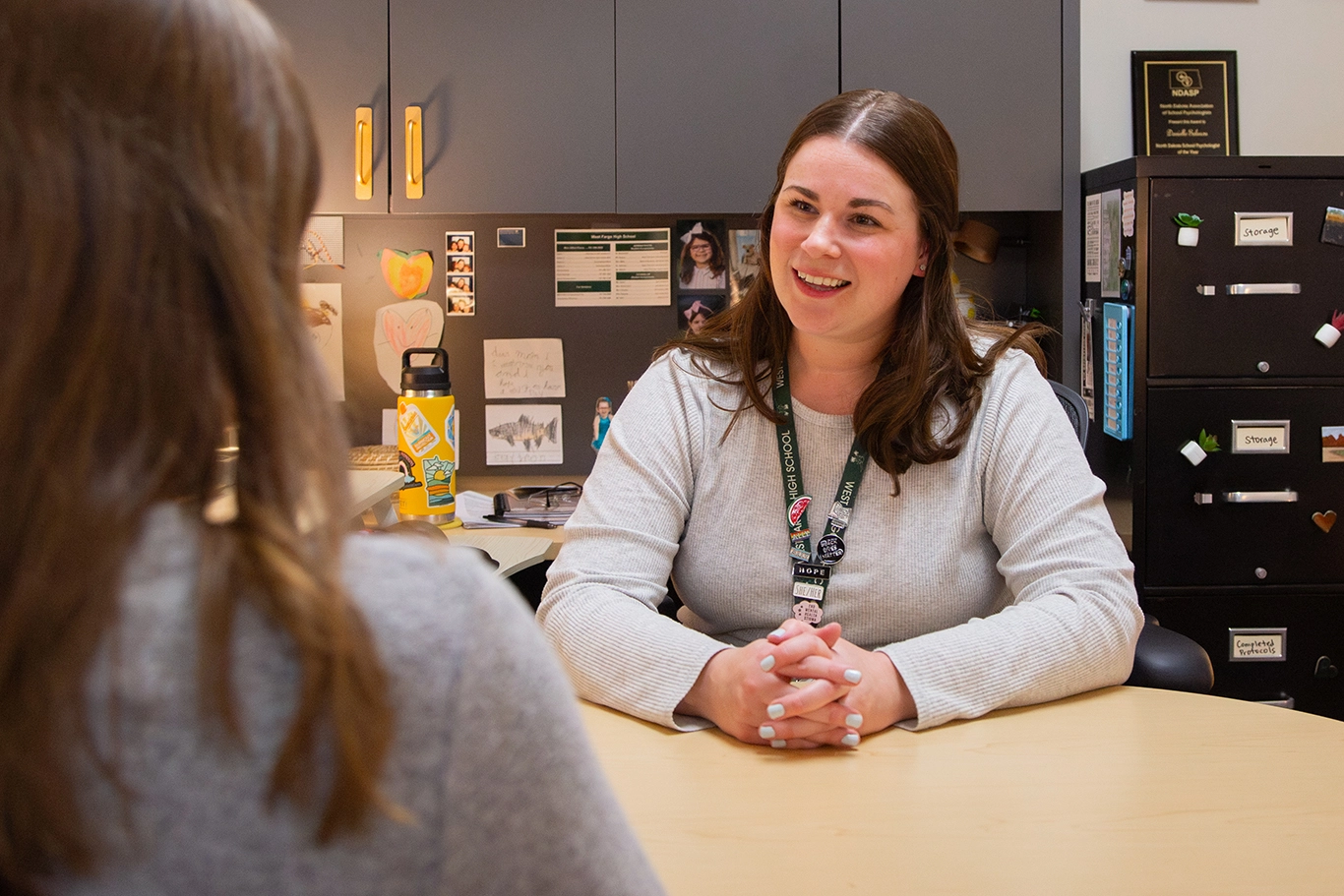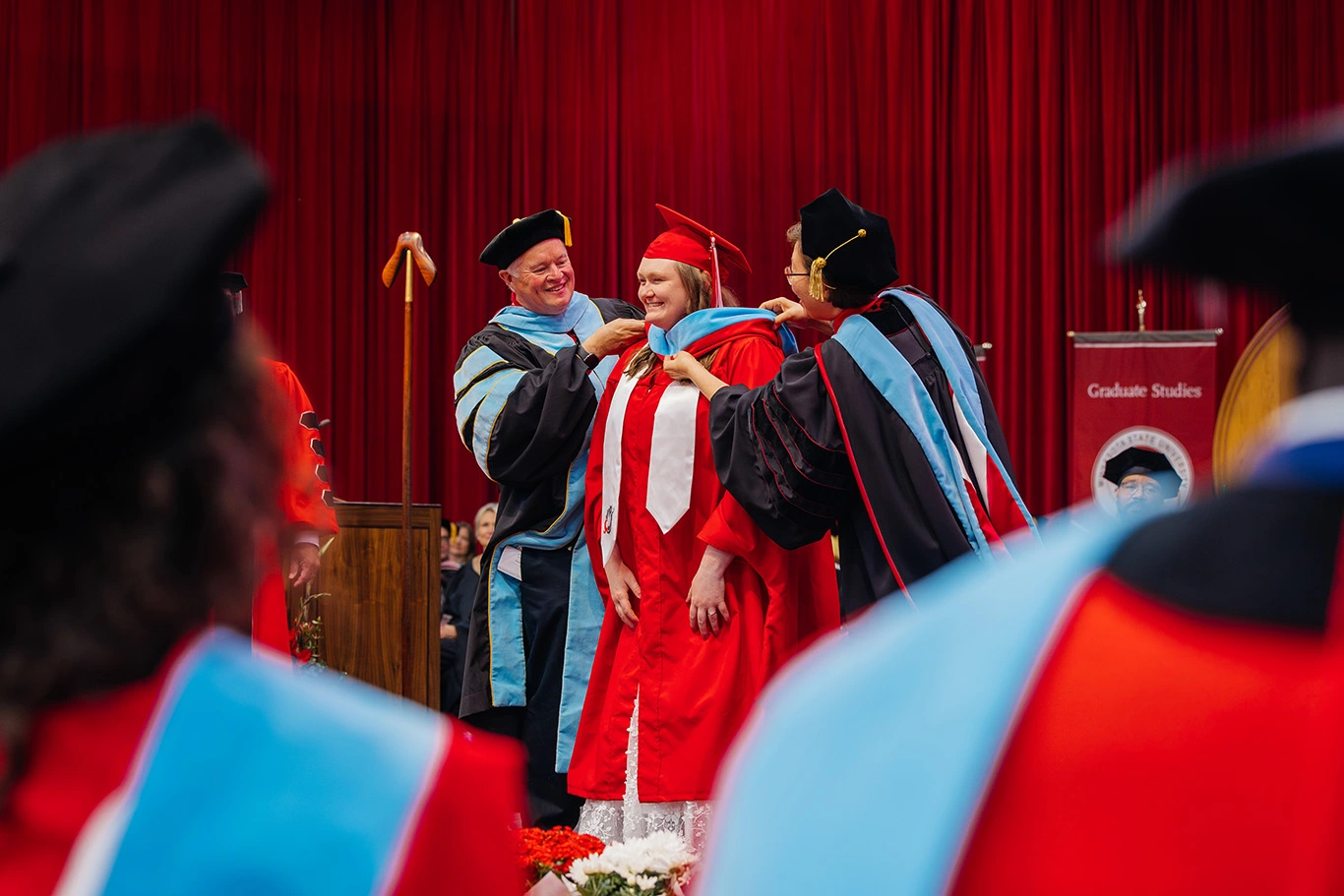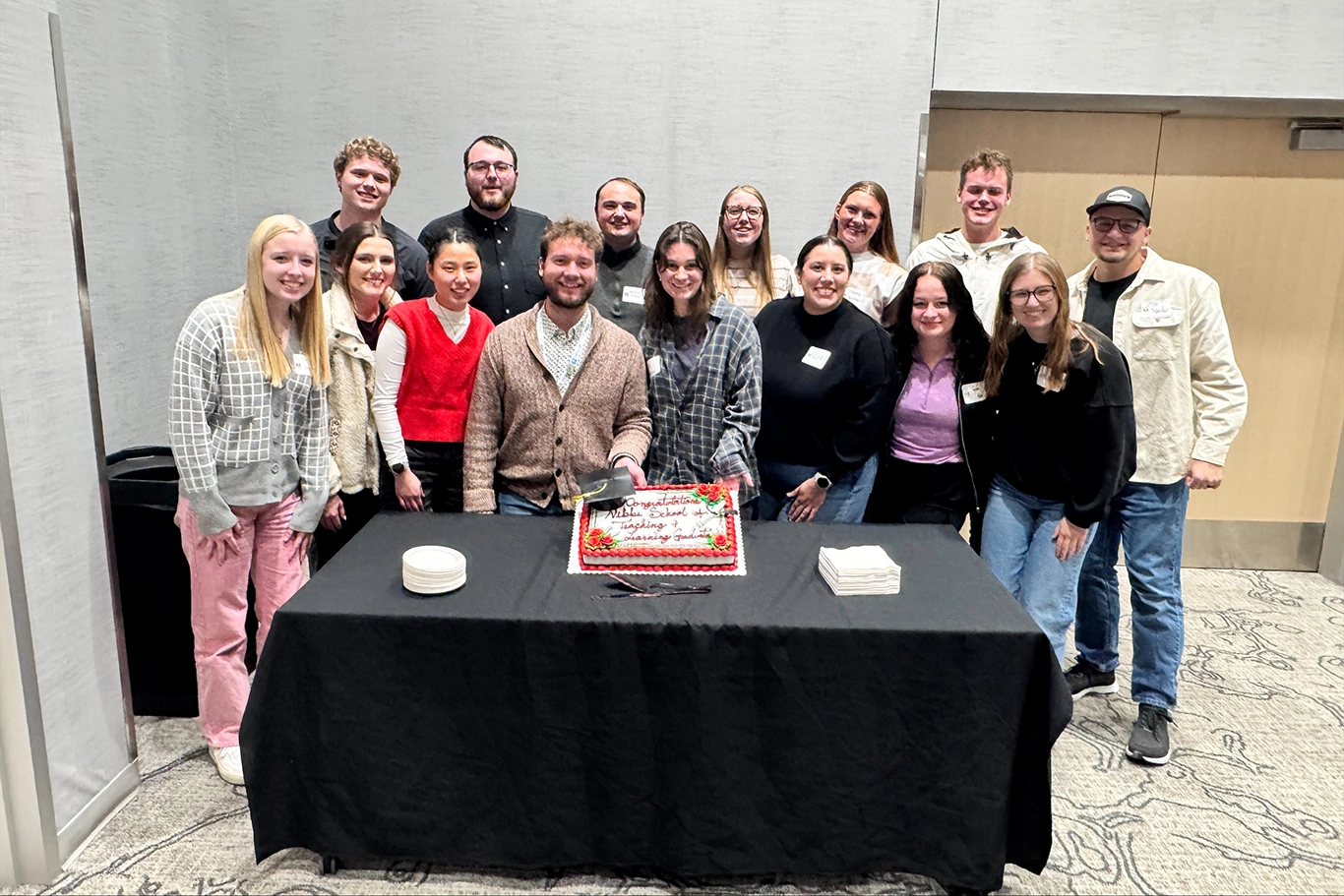Grant drives strategic growth of school counseling program
A five-year, $6.7 million grant has significantly boosted Minnesota State University Moorhead's school counseling program, nearly doubling enrollment in three years. The key factors driving the program's expansion are the urgent need for school mental health providers and the student financial support from the grant. However, faculty were poised for growth well before receiving the grant.
"The growth of our program is a team effort," says Taryn Akgul, an assistant professor and school counseling program coordinator. "We recognized opportunities to expand the program and strategically decided pre-pandemic to allow students to join the program remotely."
Removing the in-person barrier helps students in rural communities enroll in the master's program because they can attend class remotely or in person. The grant is significant, too, offering up to $24,000 over two years of graduate study.
"Finding school counselors is challenging, especially in small rural districts like ours," says Rick Bleichner, superintendent at Herman-Norcross School District. "We've been fortunate to have our last two counselors come from MSUM's counseling program. Our current counselor, supported by the MSUM grant, allows her to work toward her degree while staying employed with us."
Minnesota State Legislation also allowed the school district to use dollars for student support, increasing the part-time position to full-time. "With these two programs in place, it is a win-win for our school district," Bleichner says.
One reason students choose MSUM over regional competitors is the ability to participate in the graduate program remotely and to attend evening classes so they can work full-time. They also receive a personalized plan allowing them to complete the program at their own pace.
"We consistently hear we are very student-centered," Akgul says. "Students say faculty are approachable, empathetic, and have relevant counseling experience in the field. They want students to succeed."
Alums find fit with School Counseling
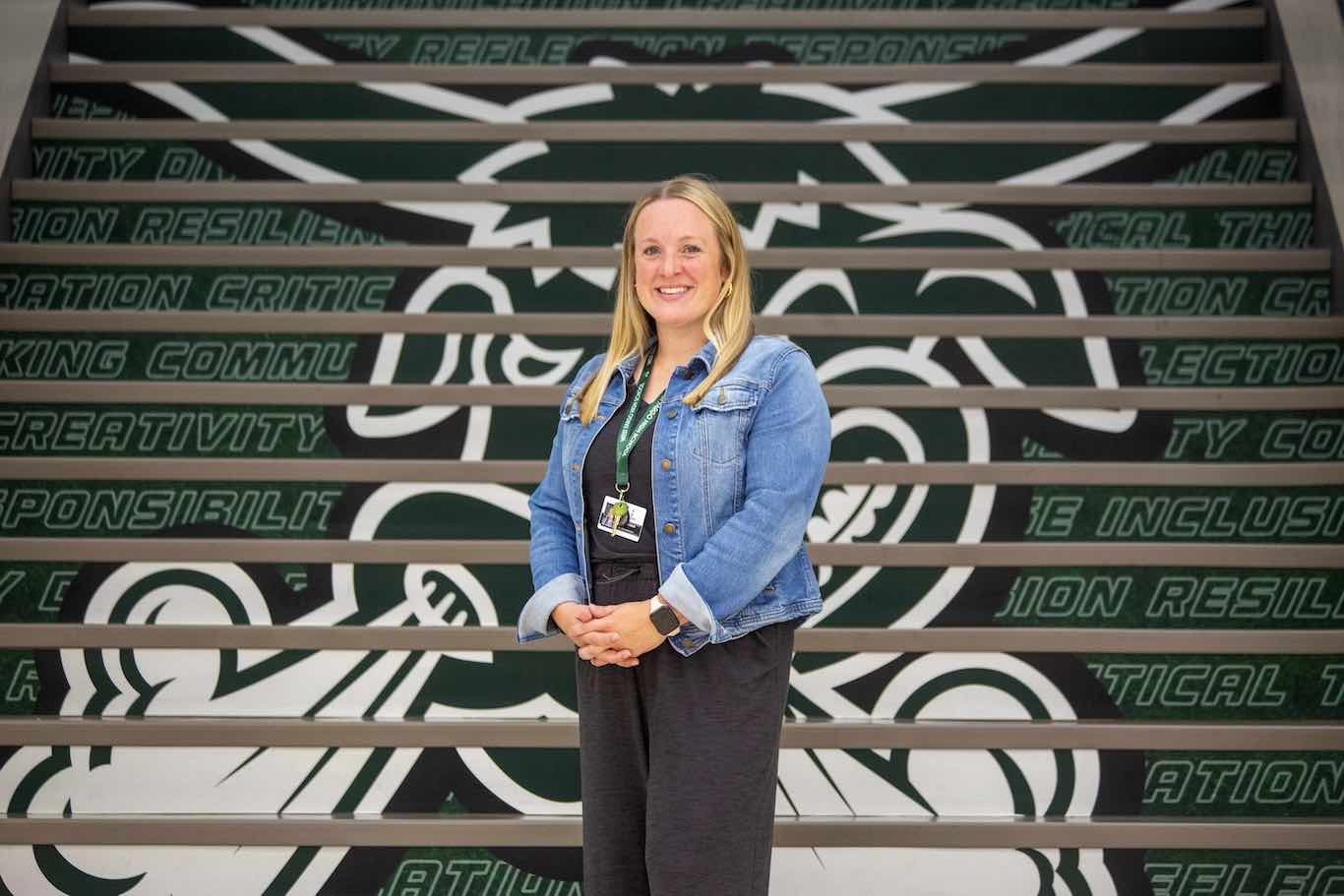
Megan Cowden
Megan Cowden '14 (social work) had started graduate work in clinical mental health and school counseling while living in Milwaukee. Her husband's transfer back to Fargo-Moorhead meant Megan, too, was looking for a compatible graduate program to transfer into.
"I had a great experience at MSUM during my undergraduate program. My professors cared so much, it was a natural transition for me to return for the school counseling program," Cowden says.
Her credits transferred seamlessly, and she has taken both in-person and virtual classes. "I appreciate both in-person and virtual classes because it allows me to meet with classmates who aren't in the area," Cowden says. "We learn so much from each other."
While attending classes, she worked virtually as a social worker at the Children's Hospital of Wisconsin-Milwaukee. This fall, she joined West Fargo High School as a school counselor. She'll graduate with her school counseling degree in May.
"I started applying for jobs because my professors encouraged me to do so," Cowden says. "They were confident of my experience and the strength of the school counseling program. I needed that encouragement."
Meeting students where they are is vital since they arrive at MSUM at different points in their lives. Adults seeking a second career may need to continue working full-time while pursuing their degree. Some students come directly from their undergraduate degree program. While most students are from the region, more are coming from out of state. Or out of the country.
Mahlet Habtemeskel '23 (sociology) is an international student from Ethiopia. Three days after earning her undergraduate degree from MSUM, she started the school counseling program. A heart-to-heart with Akgul about combining her professional interests and recalling her positive experience with a school counselor while a student in Sweden helped affirm Habtemeskel's decision.
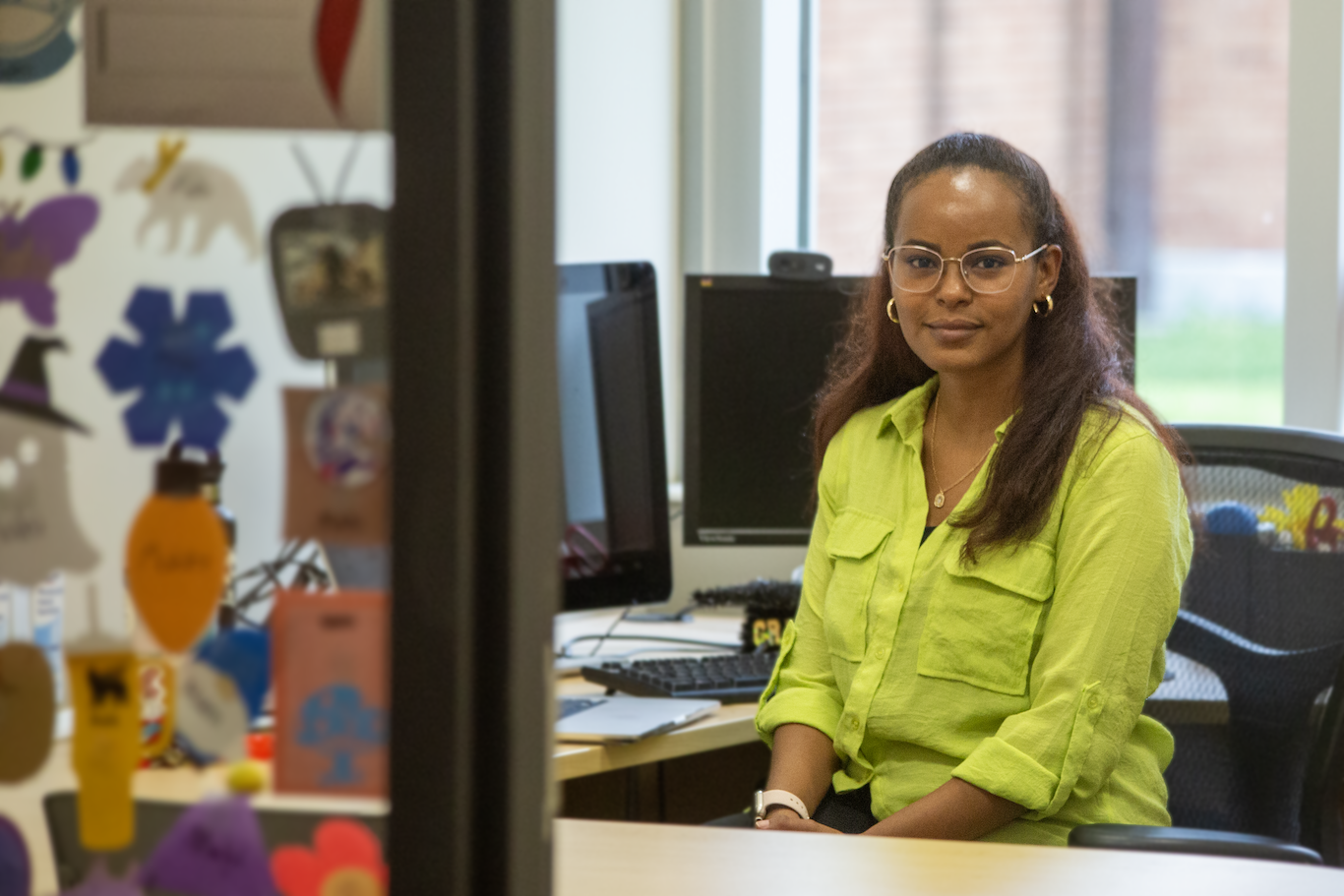
Mahlet Habtemeskel
"I am so grateful and blessed," says Habtemeskel, who speaks English as her third language. "I don't know much about America's school systems or the culture, but the faculty only see good things in me. I deeply appreciate their support."
The grant helps immensely, as does her graduate assistantship with the Community Outreach Center and Learning Community Mentors.
"As an undergraduate student, I learned firsthand the challenges and opportunities new students might encounter. My academic background, past work experiences, and the relationships I had with professors as mentors have prepared me well," Habtemeskel says. "My exposure to a variety of learning environments helps me to adapt to the diverse needs and expectations of the learning community mentors."
Delivering a uniquely designed program
"Our program is unique because it offers CACREP accreditation in our full master's program, flexibility, and hybrid options," Akgul says. "We also attract applicants from across the country who seek out our highly competitive and uniquely positioned certificate programs in addiction counseling, school counseling, and professional counseling."
One faculty member joined MSUM this fall to accommodate the program's enrollment growth. The university continues to pursue strategic growth within accreditation limits and is exploring additional grants to support further expansion.
For more information about MSUM's Master of Science in Counseling, visit mnstate.edu/graduate/counseling.
Master of Science in Counseling
Minnesota State University Moorhead’s Master of Science in Counseling is CACREP-accredited. The School Counseling emphasis is part of the Infuse Mental Health Project, which offers grant support for graduate study.
Learn more about MS in Counseling

